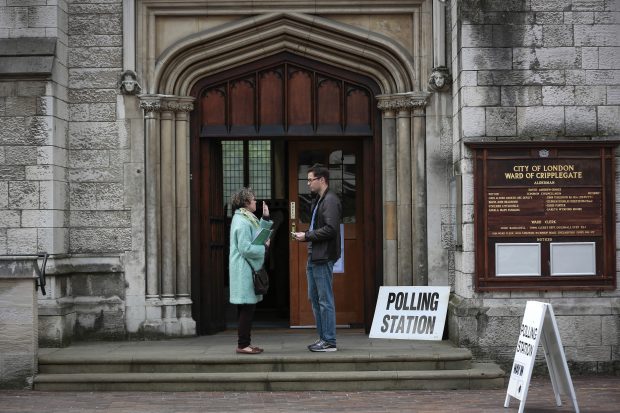In spite of everything against them, the Labour party scored an historic victory last night in the City of London. Five Labour councillors were elected in wards that are traditionally contested by ‘independents’ (usually retiree residents who are inclined towards the pomp and ceremony). It was their highest ever total.
People will, of course, be quick to point out that the City of London is the 325th smallest authority in England, out of a total of 326. It has 25 wards covering the area that would, in most authorities, be designated to a single ward. Labour also only has 5 Commoners (the antiquated term the City uses in favour of ‘councillors’) out of a total of 100, so is hardly stamping its authority on the area. But despite the limitations of the victory, there is a sense of optimism that this unprecedented swing happened in spite of Jeremy Corbyn.
For weeks, the message on the doorstep has been anger at Jeremy Corbyn. People are angry at him for supposedly supporting Brexit. People are angry at him for supposedly undermining Brexit. People are angry at his IRA sympathies, his private education, his failure to control his MPs. In short, residents of the City of London have, like the people of Copeland before them, been perfectly vocal in their criticism of the Labour leader. And you would expect that, given that the City has the most uniquely conservative form of local democracy in the country.
Already today however, the far-left fringe of the Labour party have started to muscle in on this improbable victory, with Momentum hailing it ‘fantastic news’ and Eoin Clarke – the High Priest of Corbynite delusion – describing it as ‘historic’. They’re all correct, of course, but this was a victory that came about regardless of Jeremy Corbyn’s rudderless guidance, not because of it.
The results also indicate how ingrained partisanship still is in London. Sadiq Khan won 56.8 per cent of the London mayoral vote last year, but lost to Zac Goldsmith in the City of London. But the archaic customs of the City of London Corporation mean that the Conservatives do not campaign there (though the ‘independent’ candidates are all within the Tory’s target demographic anyway) and, if they did, they would likely sweep the board. Partisanship has worked in Labour’s favour this month, but that will inevitably unravel when the other parties enter the fray.
Other than the fact that the City of London’s existence as a local authority is fundamentally anti-democratic, there is little solid to be drawn from last night’s results. At the count I attended in Barber Surgeon’s Hall, the feeling was relief that the multi-headed hydra of Brexit, Islamic terrorism and double-agent Corbyn hadn’t destroyed Labour’s hopes. No victory is too small for Labour HQ at the moment – we mustn’t forget that Jeremy Corbyn once celebrated a parish council victory at a leadership rally – but as new ground is broken in the Square Mile, it is increasingly apparent that local candidates are having to divorce themselves from association with the Labour leader. The rift that is already there may never become the separated parties that so many in Labour dream of, but already the campaigning forces are acting as two autonomous presences.
With many local elections around the country due to be held in 2018, many Labour branches will try and follow a similar strategy – work hard, and don’t be afraid to disavow Corbyn on the doorstep.







Comments